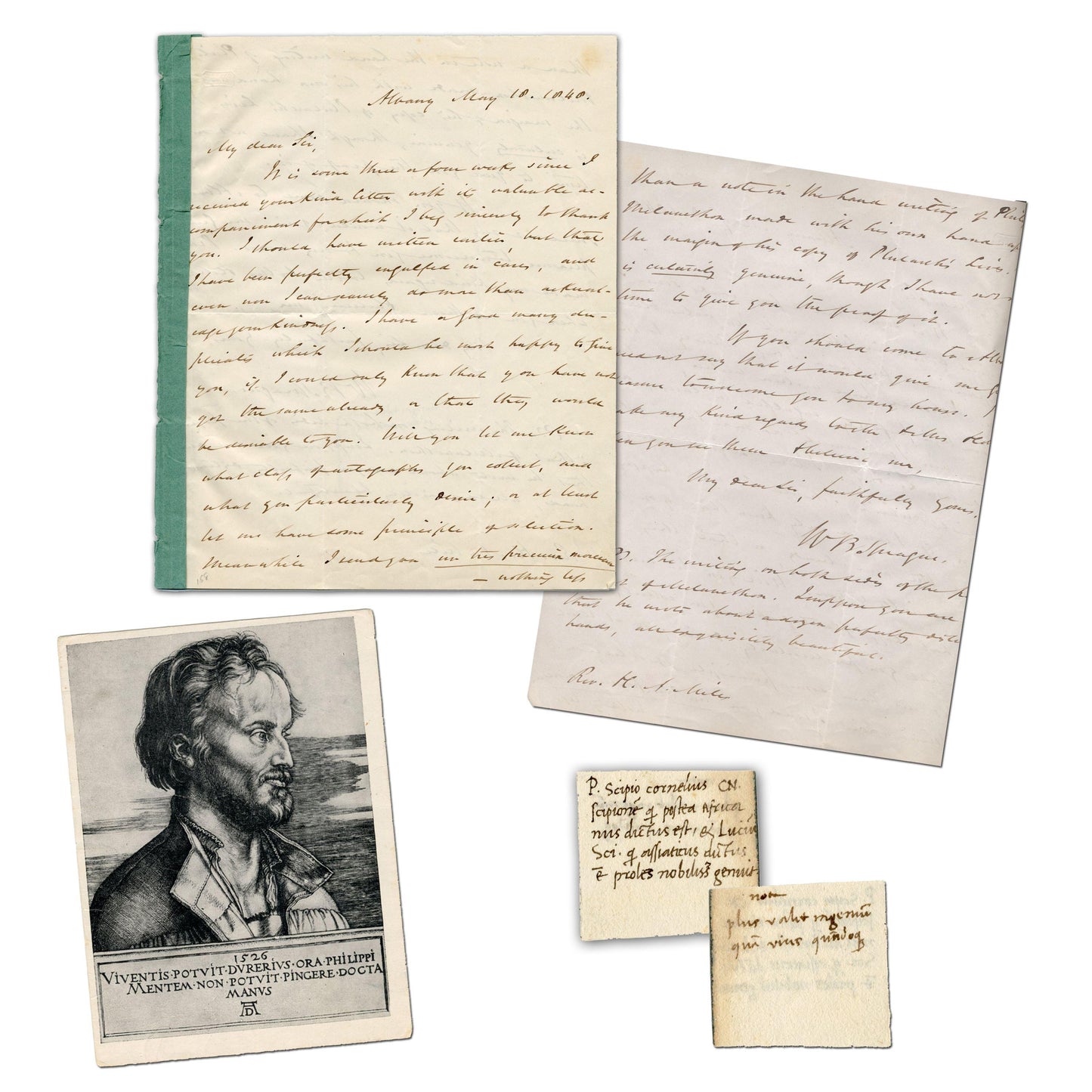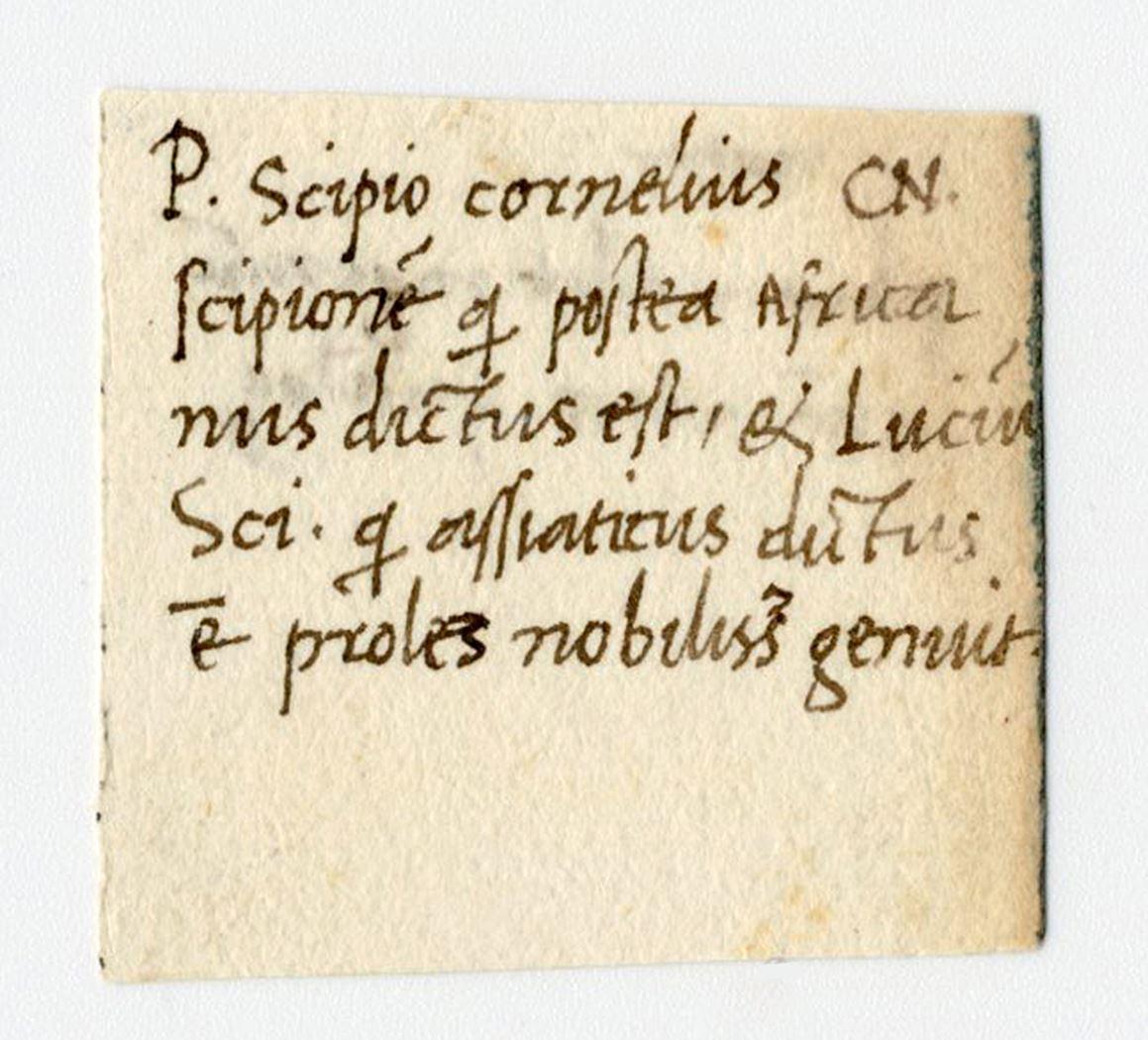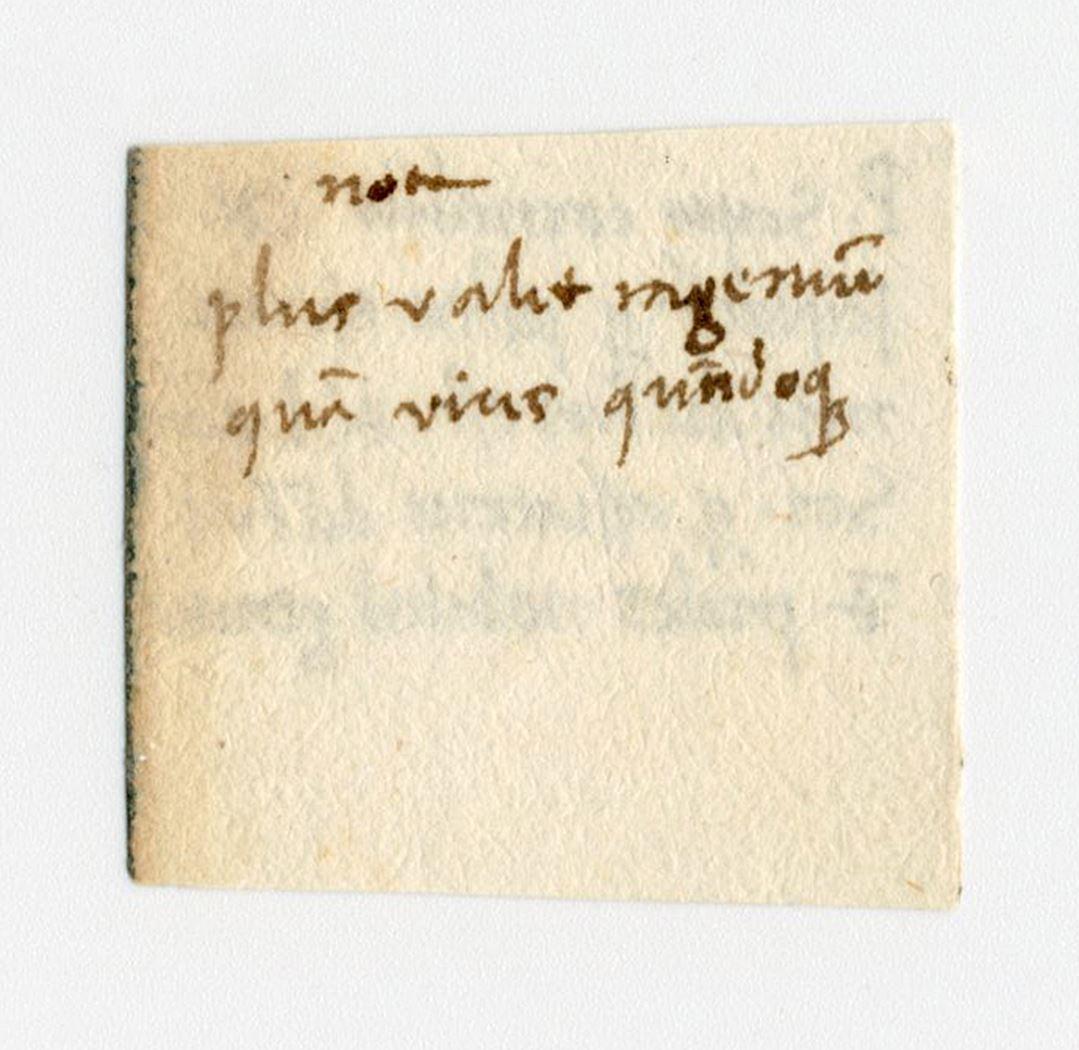Specs Fine Books
1540 PHILIP MELANCHTHON. Original Handwritten Manuscript Fragment - Finely Provenanced!
1540 PHILIP MELANCHTHON. Original Handwritten Manuscript Fragment - Finely Provenanced!
Couldn't load pickup availability
What a delightful little item, and perhaps the only affordable authentic pieces of manuscript by Philip Melanchthon we'll ever handle.
The fragment itself is comprised of a total of 28 Latin words and abbreviations in the hand of German Reformer, Philip Melanchthon (1497-1560) (21 words recto, 7 words verso.) The manuscript is currently embedded within the third blank page of a 2pp autograph letter signed by one of the most important American autograph collectors of the 19th century, Rev. William Buell Sprague (1795-1876). Sprague was noted for assembling some of the finest collections of early American manuscripts extant and his assurance of the authenticity of the fragment is about as good as it gets.
The Sprague letter discusses the fragment and indicates that it was excised from margin notes in Melanchthon's copy of Plutarch's "Lives of the Nobel Greeks and Romans."
Born Philipp Schwartzerdt, Melanchthon adopted the scholarly name of Philip Melanchthon (a translation of his surname "black earth" from German into Greek.) Melanchthon was a major collaborator of Martin Luther and served as the formal mouthpiece of the movement. It was Melanchthon who most eloquently articulated the fundamental precepts of the Protestant Reformation into written form, especially his 1521 treatise "Loci communes rerum theologicarum seu hypotyposes theologicae."
Purchase includes:
1. A manuscript fragment in Latin entirely engrossed by Philip Melanchthon, apparently extracted from marginalia found in his personal copy of Plutarch's "Lives." Minor edge darkening, else near fine. Approximately 1.75" square. A translation of the front of the manuscript (where clerical shorthand or abbreviations have been silently changed to full form) is: "Publius Scipio Cornelius begat the most noble offspring Gnaeus Scipio (who later was called the African) and Lucius Scipio (who later was called the Asian.)" On the reverse, Melanchthon has inscribed the following: "Note: Character is worth more than strength…"
Melanchthon, educated in the Christian Humanist tradition of the time, was extremely well-versed in the Classics and the Bible. The subject of this quotation relates to Publius Scipio Cornelius (died 211 B.C.E.), who was a member of a powerful Roman patrician family called the Cornelii. He served as Roman consul in 218 and fought against Hannibal in modern day France and Spain. His two descendants were Roman military commander Publius Cornelius Scipio Africanus (ca. 236-183 B.C.E.), who defeated Carthaginian forces in North Africa and Spain; and Roman general Lucius Cornelius Scipio Asiaticus (3rd C. - after 183 B.C.E.), who served as consul in 190 and proved instrumental in the Roman-Seleucid War. Plutarch's "Lives" contained biographies of famous Greeks and Romans while including editorial comment on their strengths and shortcomings. The full text of Plutarch's biography of Scipio Africanus is believed lost.
2. The manuscript fragment is tucked into the third blank page of Sprague's letter via paper slits. The 2pp autograph letter is signed by Sprague as "W B Sprague" on the second page at lower right. Written in Albany, New York on May 18, 1848 on cream bifold paper. The gutter has been reinforced with green archival tape. Expected folds and isolated paper folds, else near fine. 7.25" x 8.75."
In a letter addressed to a fellow minister and aspiring autograph collector named Rev H.A. Miles, Sprague wrote in part: "I have a good many duplicates which I should be most happy to give you, if I could only know that you have not yet the same already or that they would be desirable to you. Will you let me know what you particularly desire; or at least let me have some principle of selection. Meanwhile I send you un tres precieux morceau [trans: a very precious piece] - nothing less than a note in the handwriting of Philip Melanchthon made with his own hand upon the margin of his copy of Plutarch's Lives…P.S. The writing on both sides of the paper is that of Melanchthon. I suppose you are aware that he wrote about a dozen perfectly distinct hand, all exquisitely beautiful."
Sprague was one of the first serious American autograph collectors of the early nineteenth century. By 1833, he was the first person to amass a complete set of autographs belonging to Signers of the Declaration of Independence; later, he collected a set of Constitutional Convention autographs, and a set of Presidential and administration autographs spanning from George Washington to John Quincy Adams. One of Sprague's particular interests was the Reformation, as can be seen with this Melanchthon autograph. Sprague's collection contained 100,000 autographs upon his death in 1876.
Would be lovely framed with the letter, the Melanchthon fragment, and an engraving of the great reformer.
Share






